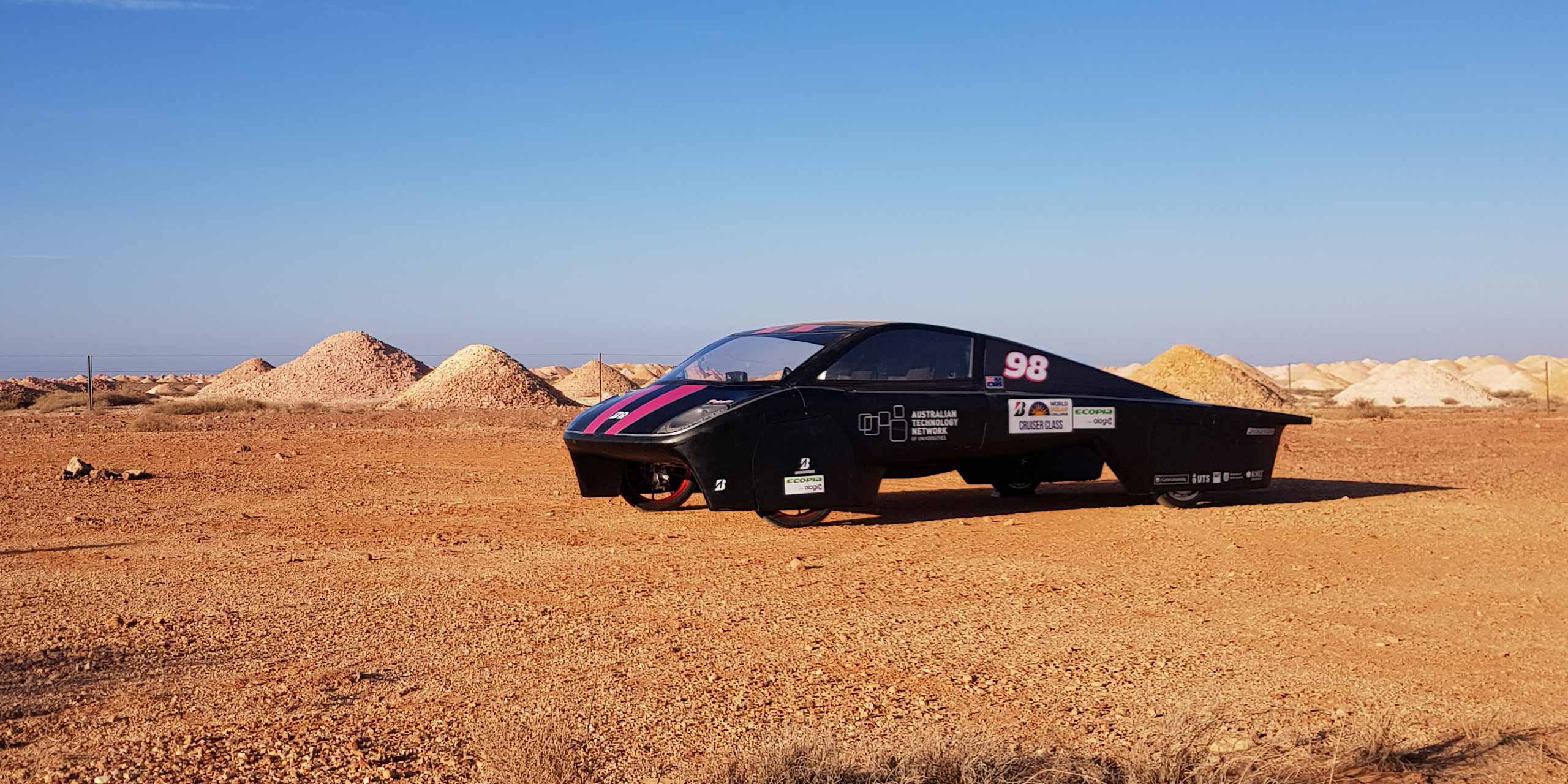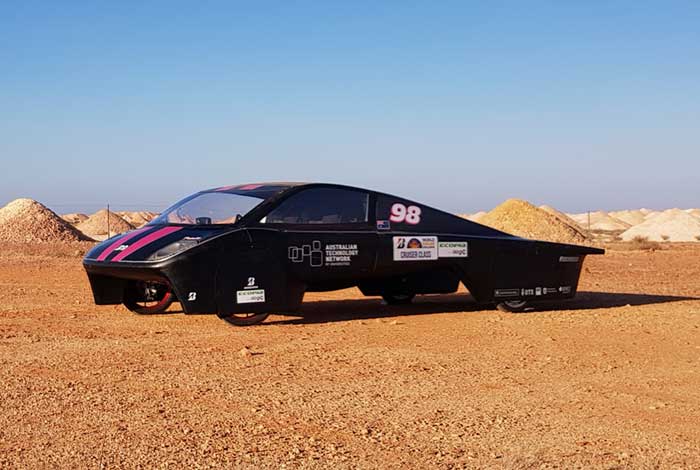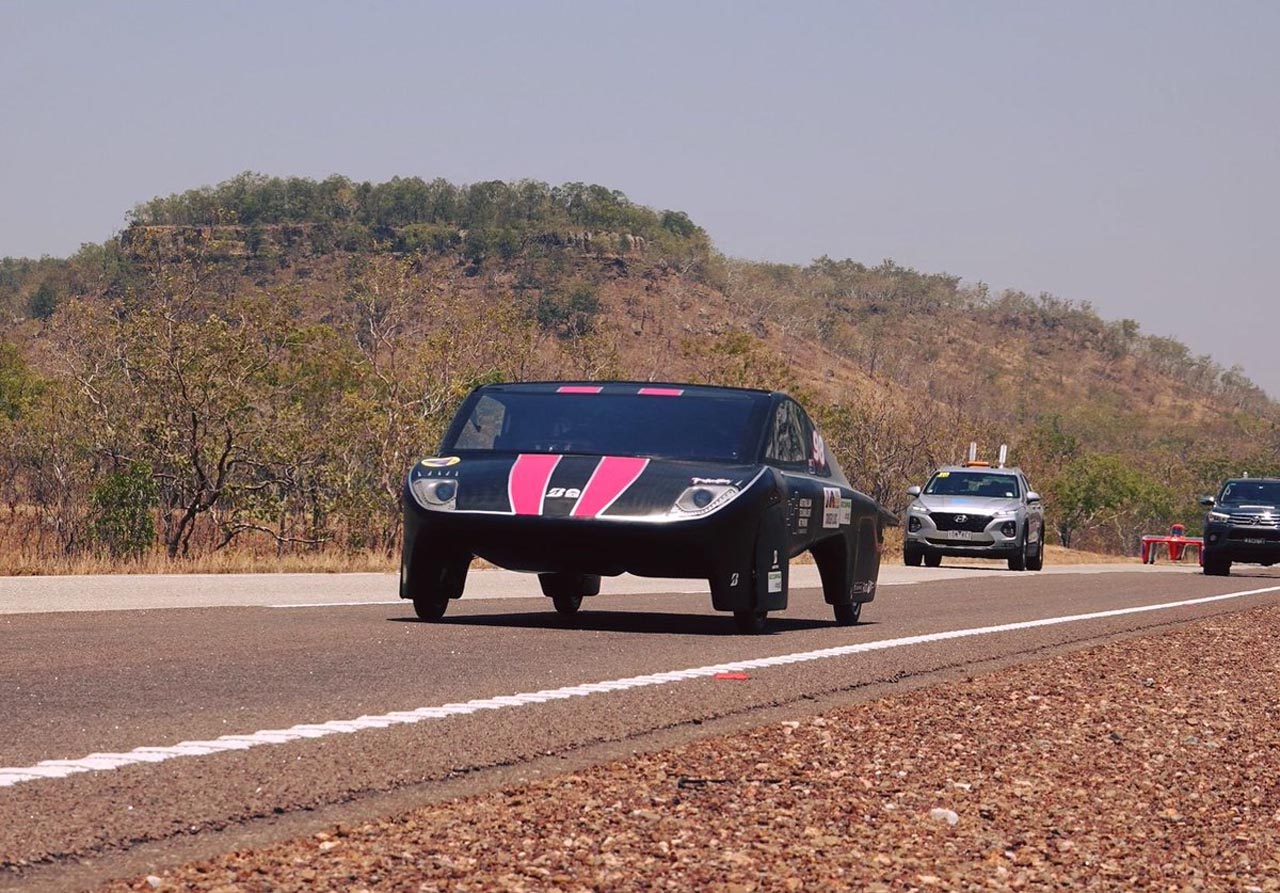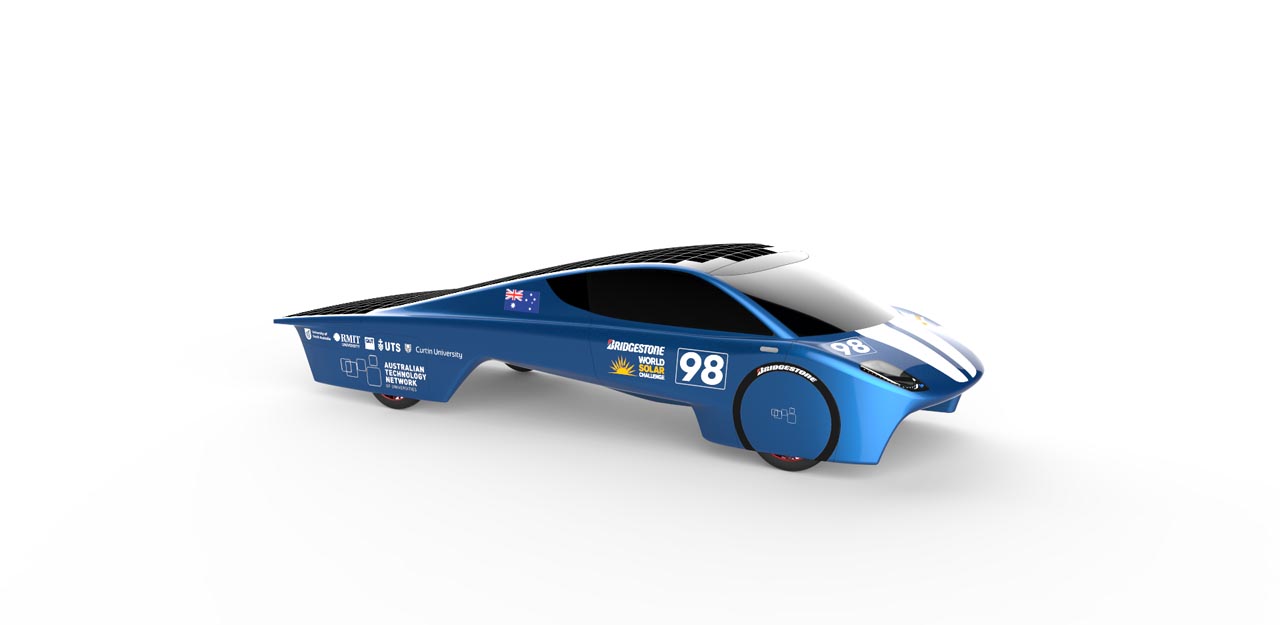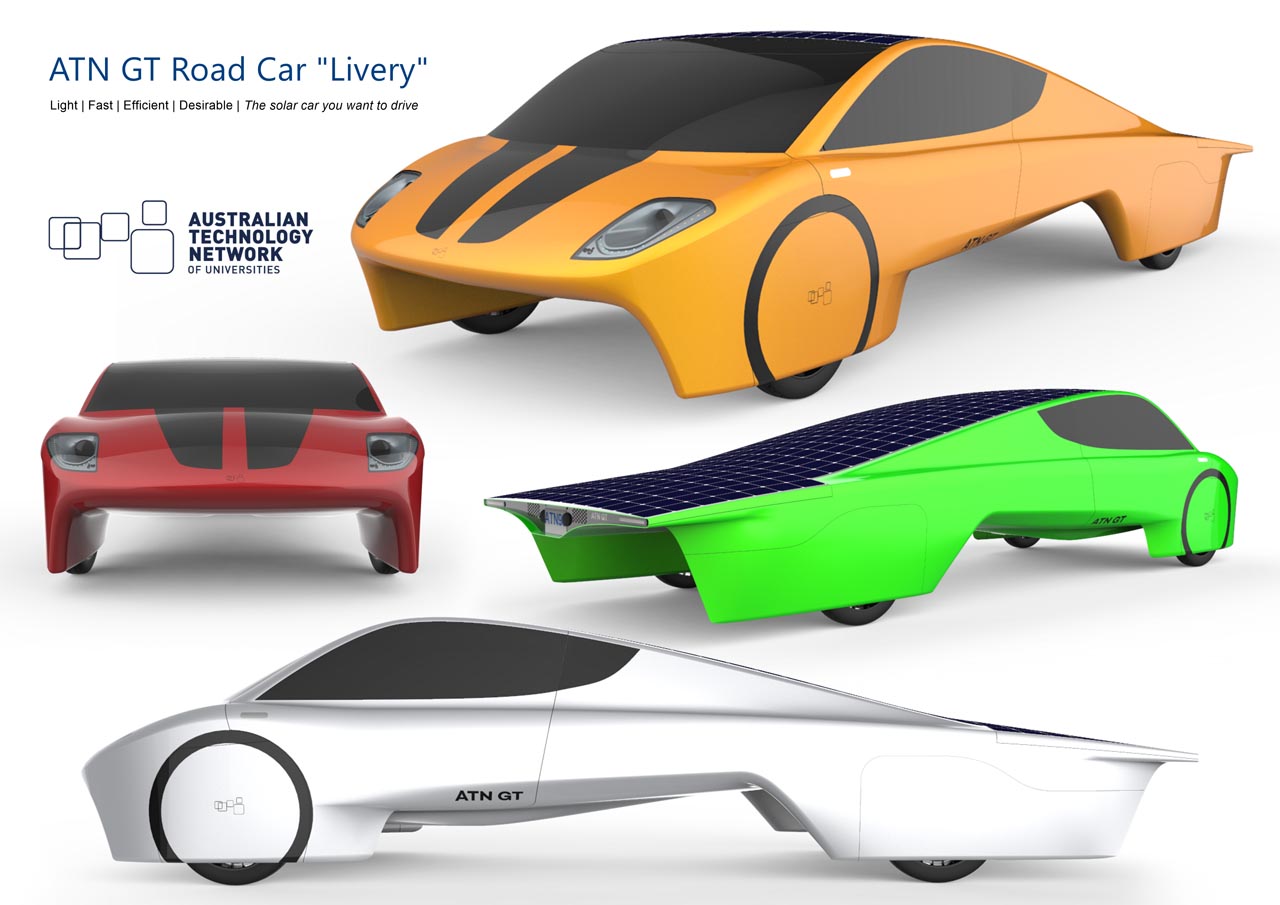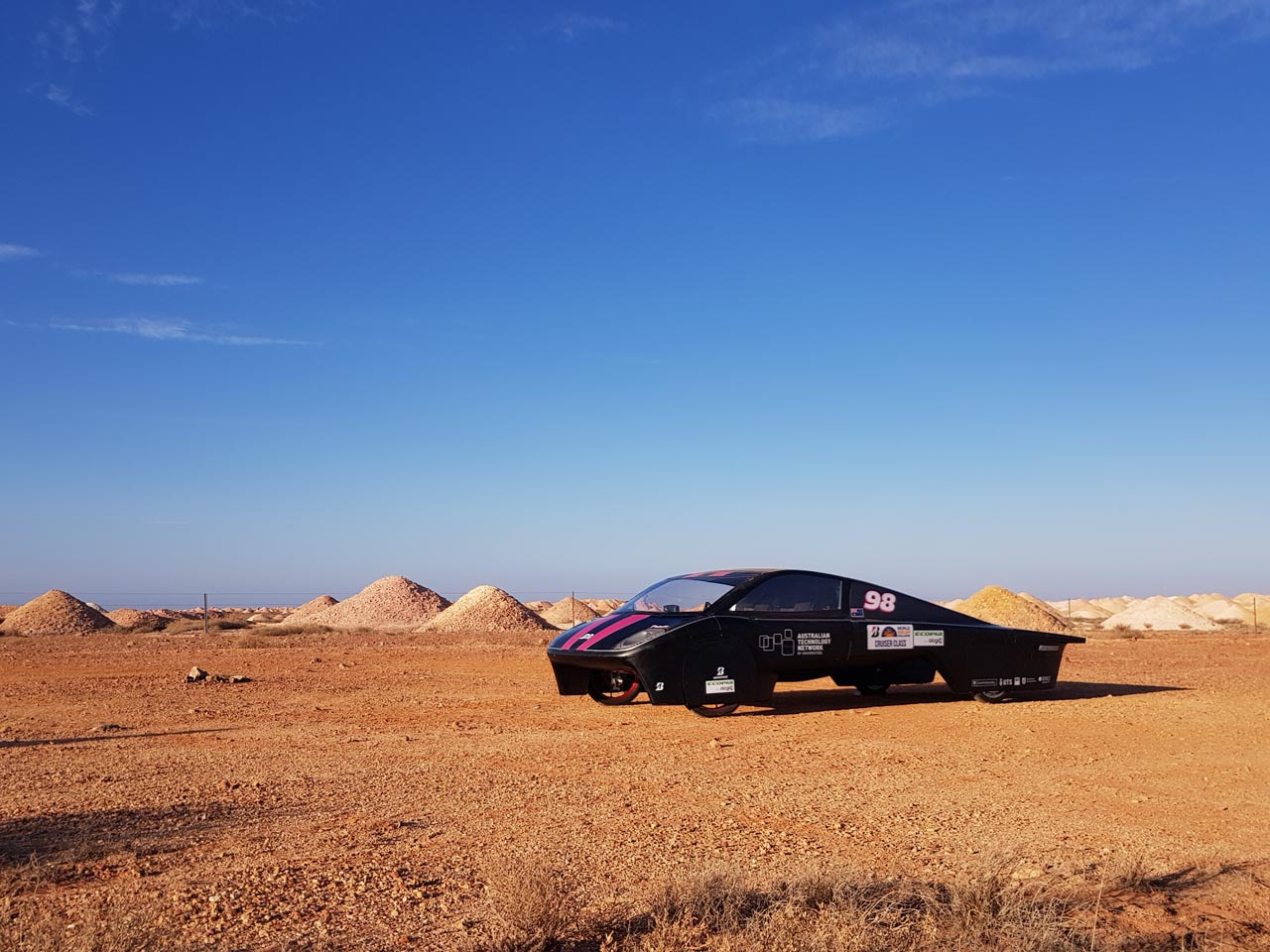Priscilla is a sculpture on wheels, the design is a fusion of the scientific engineering principles and sculpting a high-efficiency vehicle that resonates with public sentiment and promotes Australian Design capability.
Combining functionality and high energy efficiency with sports car styling, Priscilla is thrilling to drive, setting the fastest dynamic time of any car in class. The designers have delivered a hyper-efficient composite body designed and fabricated in Victoria. The vehicle represents high-performance potential with a sustainable energy footprint.
The restrained interior features seating for two occupants, ergonomic steering wheel with integrated controls and emphasis on performance and function.

